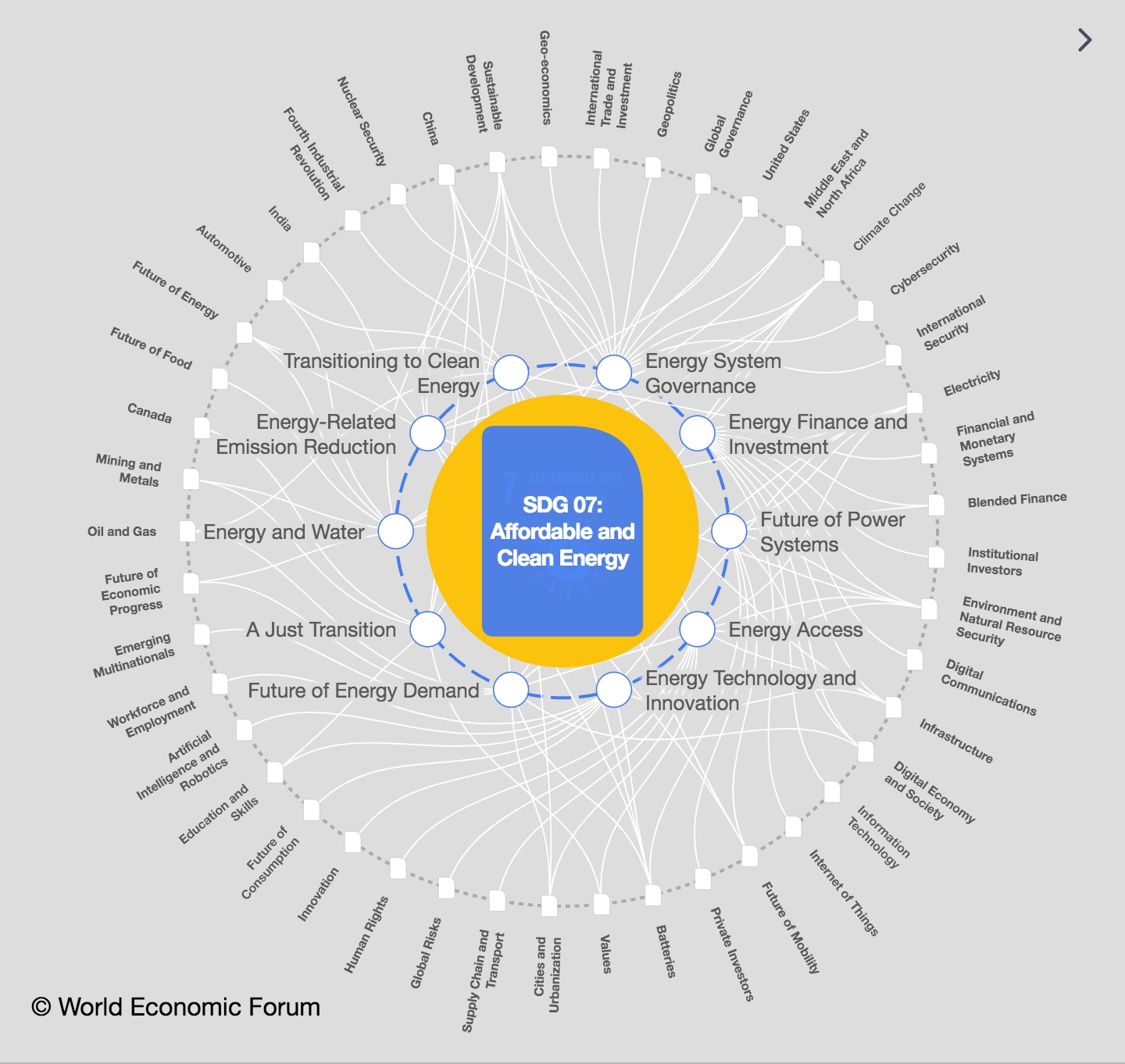Clean energy investment to hit $1.7 trillion - and other energy stories

The IEA is forecasting clean energy investment will hit $1.7 trillion this year. Image: Unsplash/Nazrin Babashova
Roberto Bocca
Head, Centre for Energy and Materials; Member of the Executive Committee, World Economic ForumListen to the article
- This weekly round-up brings you the latest developments in the global energy sector.
- Top energy news: Green energy investment booms; G7 outlines plan for the energy transition; Business leaders warning on Europe's green energy growth.
- For more on the World Economic Forum’s work in the energy space, visit the Centre for Energy and Materials.
1. New IEA report shows growth in clean energy investment
Global investment in clean energy is set to hit $1.7 trillion this year – out of a total of $2.8 trillion invested in energy in 2023, according to the International Energy Agency's (IEA) latest World Energy Investment report.
Clean energy includes renewables, electric vehicles, nuclear power and efficiency improvements. Annual clean investment is set to rise by a quarter between 2021 and 2023, compared to a 15% rise in fossil fuel investment over that period.
A number of factors have driven a rise in clean energy investment in recent years, including periods of strong economic growth and volatility in fossil fuel prices, the IEA reports.
2. G7 reaffirms commitment to the energy transition
Following its recent meeting, the G7 has released its Clean Energy Economy Action Plan. It reaffirms the group's commitment to the energy transition and the Paris Agreement, while recognizing the challenges that remain.
It stresses the dual role of public and private investment and the collaboration needed to close investment gaps that remain. The plan also outlines the critical role that low- and middle-income countries will play in the transition, and the need for deeper cooperation between the G7 and these countries to ensure that any transition reduces poverty and improves prosperity.
The plan covers seven key areas, from clean energy technologies, to trade and supply chains.
3. News in brief: More energy stories from around the world
IEA Executive Director Fatih Birol has told CNBC that while Europe has made progress in reducing its dependency on Russian oil and gas, there's still risk and work to be done. It comes as the CEOs of Volvo Group and Vattenfall have warned that Europe is at risk of being left behind on green energy, particularly around innovation and investment.
New York state has generated its highest-ever proportion of electricity from solar, with 20% coming from that source for an hour in the week beginning 15 May.
Germany has passed a draft law that will create a framework for a hydrogen core network. It is expected to enter operation by 2032.
New research warns that climate change's impact on the Hindu Kush-Himalayan water system poses risks to economic development and energy security in 16 Asian countries.
The findings of a new study could change how we capture and store carbon dioxide, reports Chemistry World. It shows that a guanidinium sulfate solution can capture CO2 at ambient pressures and temperatures, and requires little energy input to do so.
The Danish Energy Agency has signed a new contract for a carbon capture and storage project. The contract with Ørsted will last 20 years and also includes a provision to provide district heating in Kalundborg and the Greater Copenhagen area.
The International Finance Corporation and Spanish multinational Iberdrola have launched a new initiative to drive the transition to clean and efficient energy in several emerging markets, including Brazil.
The Africa Finance Corporation and the Japan Bank for International Cooperation have signed a memorandum of understanding indicating that they will work together on infrastructure projects that contribute to the acceleration of the energy transition in Africa.
A new UN Environment Programme report looks at clean energy investment in Latin America, and the regulatory and financial barriers that remain.
The World Economic Forum and the Government of Malaysia have established the first Centre for the Fourth Industrial Revolution in the ASEAN region. The Centre for the Fourth Industrial Revolution Malaysia will focus on the energy transition, digital economy, and digital transformation. The centre will foster public-private collaboration and innovation to benefit Malaysia’s energy transition and move the region one step further to a greener future.
4. More on energy from Agenda
Another new IEA report gives a roadmap for oil and gas companies to reduce their emissions.
The G7 summit also looked at ways to advance the circular economy. Here are some key takeaways.
How can South-East Asia fund its clean energy ambitions? Greater transparency, an increased role for development finance institutions and improved risk management will all have a role to play.
To learn more about the work of the Energy, Materials, Infrastructure Platform, contact Ella Yutong Lin: ellayutong.lin@weforum.org
Don't miss any update on this topic
Create a free account and access your personalized content collection with our latest publications and analyses.
License and Republishing
World Economic Forum articles may be republished in accordance with the Creative Commons Attribution-NonCommercial-NoDerivatives 4.0 International Public License, and in accordance with our Terms of Use.
The views expressed in this article are those of the author alone and not the World Economic Forum.
Stay up to date:
SDG 07: Affordable and Clean Energy
Forum Stories newsletter
Bringing you weekly curated insights and analysis on the global issues that matter.
More on Energy TransitionSee all
Roberto Bocca
November 17, 2025







